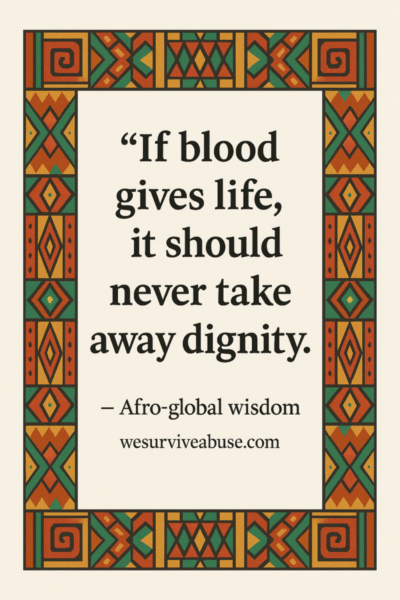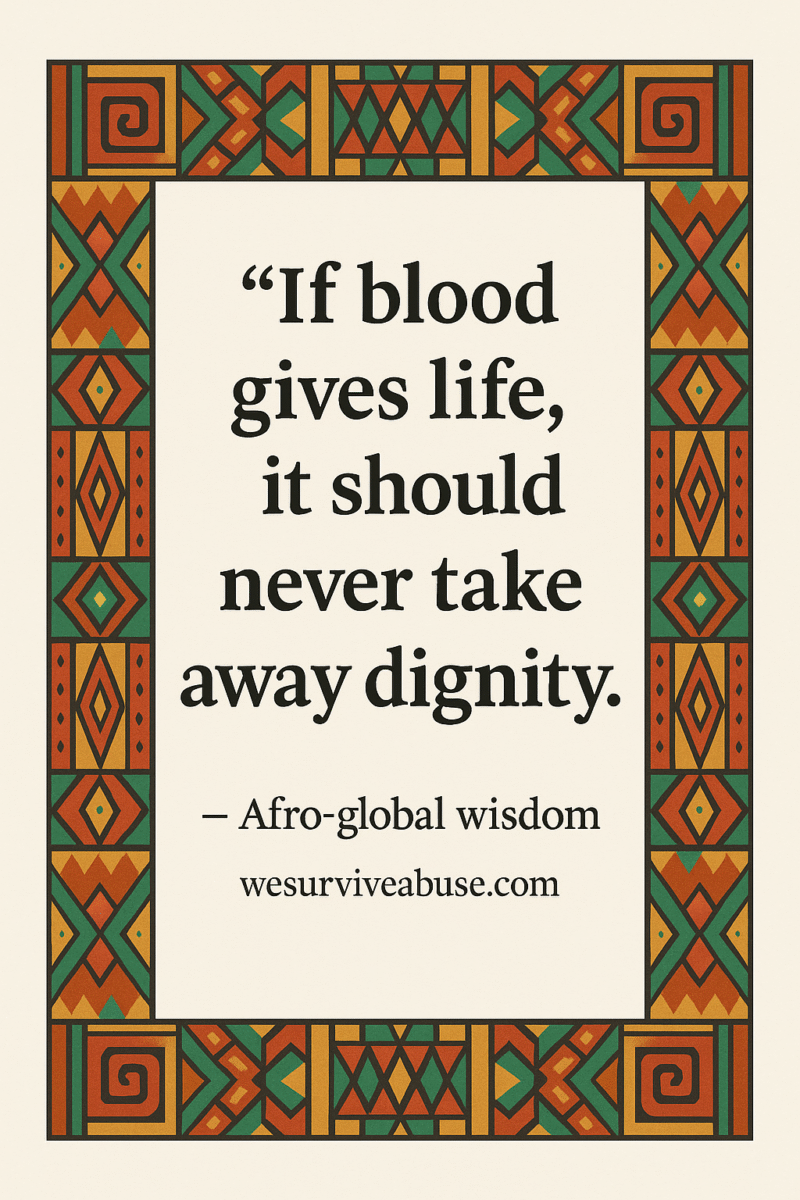Every day, around the world—including in wealthy nations like the U.S.—girls and women are suffering in silence simply because of their periods. They
 Every day, around the world—including in wealthy nations like the U.S.—girls and women are suffering in silence simply because of their periods.
Every day, around the world—including in wealthy nations like the U.S.—girls and women are suffering in silence simply because of their periods.
They are missing school. Skipping meals to afford pads. Facing infections. Feeling humiliated.
Period poverty is the lack of access to affordable, safe menstrual products and hygiene resources.
And it is a justice issue.
A dignity issue.
A public health issue.
A girls’ safety issue.
💡 12 Facts About Period Poverty You Might Not Know
1. 1 in 4 teens in the U.S. has missed school because they couldn’t afford period products.
No one should have to choose between their education and their basic health.
2. Pads and tampons are taxed as “luxury” items in many U.S. states.
Essential products for managing menstruation are still not recognized as necessities by law.
3. Girls living in poverty often improvise with unsafe items—like socks, rags, newspaper, or nothing at all.
This can lead to infections, embarrassment, and long-term health problems.
4. In some parts of the world, girls miss up to 20% of the school year because of their periods.
When there are no products or privacy, girls stop showing up. Many never return.
5. Menstrual products can cost more than $18,000 over a lifetime.
And that doesn’t include heating pads, medication for cramps, birth control for regulation, or clean underwear.
6. Girls often feel too ashamed to ask for pads—even when they’re in pain or bleeding through clothes.
Silence caused by stigma is one of the biggest barriers to getting help.
7. Many schools do not provide free pads or tampons in bathrooms.
Some students have to ask the school nurse, teacher, or even go home early.
8. In shelters and transitional housing, period products are scarce and often considered a “bonus”—not a necessity.
Girls and women experiencing homelessness deserve dignity, not deprivation.
9. Some abusive homes use menstrual product access as a form of control.
Women and girls have been denied pads or tampons as punishment. This is a form of humiliation and abuse.
10. Shame around menstruation is still taught—often unconsciously—from generation to generation.
Girls are taught to whisper, to hide, to be embarrassed by a natural and healthy body process.
11. Period poverty is one of the leading silent causes of girls falling behind in school.
When your body isn’t supported, your mind can’t stay focused. It’s that simple.
12. Just a few dollars can make a difference.
For less than the cost of a fast-food meal, you can provide a month’s worth of pads for a girl in need.
This Isn’t Just About Periods—It’s About Power, Dignity, and Equity
Girls deserve to feel clean.
They deserve to go to school.
They deserve to raise their hands in class without hiding a stain.
They deserve to ask for help without shame.
They deserve access—freely, fully, and without begging.
💪🏾 What Can Communities Do?
Hold donation drives for pads, tampons, panty liners, menstrual cups, and clean underwear for women and children.
Raise money to supply shelters, schools, and afterschool programs with menstrual kits.
Place free pads in public restrooms for women and girls—especially in schools, libraries, and community centers.
Speak openly about periods in your households and communities to end shame.
Push your local schools, shelters, and city councils to provide menstrual products at no cost.
- STOP being a non-empathetic nuisance to women and girls raising awareness to this issue, like beloved activist Nomcebo Mkhaliphi. Nomcebo, a proud African Lady, who educates girls about menstruation has been questioned and attacked online for refusing to the label: “person who menstruates” or “menstruator”.
Along the way a racial cross-section of women and men have defended and donated to her cause but the harassment, taunts, slurs, and insults continue. Women and girls around the world have different experiences with how female health and anatomy is treated.
We here in the West have a duty as fellow human beings on this planet to listen and help where we are asked to rather than hinder progress. (Especially when Western women are not listened to here either). Nomcebo Mkhaliphi is a leader and teaching women North, East, West, and South lessons in grassroots advocacy around female health and menstruation. We are grateful for her light.

🌍 “If blood gives life, it should never take away dignity.”
— Afro-global reflection shared among women’s circles
Let’s make it easy. Let’s make it safe.
Let’s make it something no girl ever has to whisper about again.
Because when girls and women have what we need—we rise.
[rosaschildren.com] | [wesurviveabuse.com] | [survivoraffirmations.com]
Share if you feel safe and ready—your voice might be the lifeline someone else needs. And if you do share, remember to cite the messenger. Words carry legacy.


